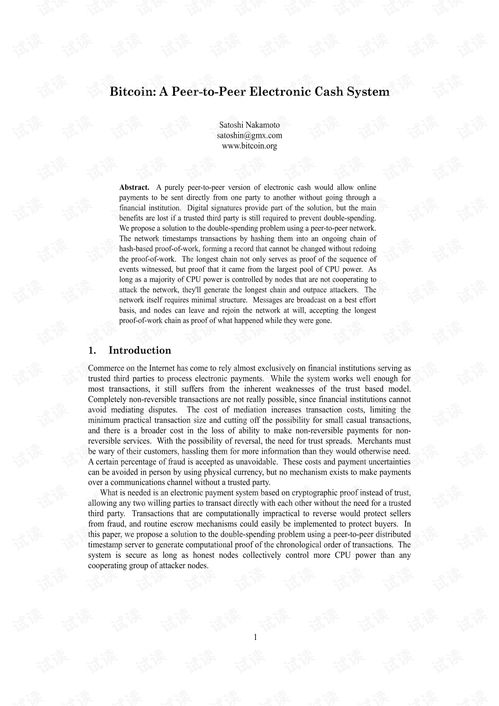
比特币的英文小写, What is Bitcoin?
时间:2024-11-26 来源:网络 人气:
Understanding Bitcoin: The Basics and Beyond
What is Bitcoin?

Bitcoin, often abbreviated as BTC or XBT, is a decentralized digital currency that operates on a peer-to-peer network. It was created by an unknown person or group of people using the pseudonym Satoshi Nakamoto in 2009. Unlike traditional fiat currencies, Bitcoin is not controlled by any central authority, such as a government or central bank.
How Does Bitcoin Work?

Bitcoin operates on a technology called blockchain, which is a decentralized ledger that records all transactions across a network of computers. Each transaction is grouped into a block, and once a block is filled with transactions, it is added to the blockchain in a linear, chronological order.
Key Features of Bitcoin

Decentralization

One of the most significant features of Bitcoin is its decentralization. This means that no single entity has control over the network, making it resistant to censorship and manipulation.
Security

Bitcoin uses advanced cryptographic techniques to secure transactions and control the creation of new units. This makes it nearly impossible to counterfeit or double-spend.
Transparency

Every transaction on the Bitcoin network is recorded on the blockchain, making it transparent and verifiable by anyone.
Scalability

Bitcoin has faced scalability challenges, but ongoing developments, such as the Lightning Network, aim to improve its ability to handle a large number of transactions.
How to Obtain Bitcoin

Buying Bitcoin

One of the most common ways to obtain Bitcoin is by purchasing it on a cryptocurrency exchange. Users can buy Bitcoin using fiat currency or other cryptocurrencies.
Minning

Bitcoin mining is the process by which new bitcoins are entered into circulation. Miners use specialized hardware and software to solve complex mathematical problems, and in return, they are rewarded with Bitcoin.
Accepting Bitcoin

Businesses and individuals can also obtain Bitcoin by accepting it as a payment for goods and services.
Bitcoin's Market Value

Volatility

Bitcoin is known for its high volatility, meaning its value can fluctuate significantly over short periods. This has both advantages and disadvantages for investors.
Market Cap

The market capitalization of Bitcoin is a measure of its total value. As of now, Bitcoin is the largest cryptocurrency by market cap.
Bitcoin's Impact on the World

Financial Inclusion

Bitcoin can provide financial services to unbanked or underbanked populations, as it operates independently of traditional banking systems.
Disruption of Traditional Financial Systems

Bitcoin has the potential to disrupt traditional financial systems by offering a decentralized, peer-to-peer payment system.
Environmental Concerns

Bitcoin mining requires a significant amount of energy, which has raised concerns about its environmental impact.
Conclusion

Bitcoin is a revolutionary technology that has the potential to reshape the financial world. While it still faces challenges and uncertainties, its unique features and growing adoption make it a fascinating subject for investors and enthusiasts alike. As the world continues to evolve, Bitcoin and other cryptocurrencies may play an increasingly important role in the global economy.
相关推荐
教程资讯
区块链排行













